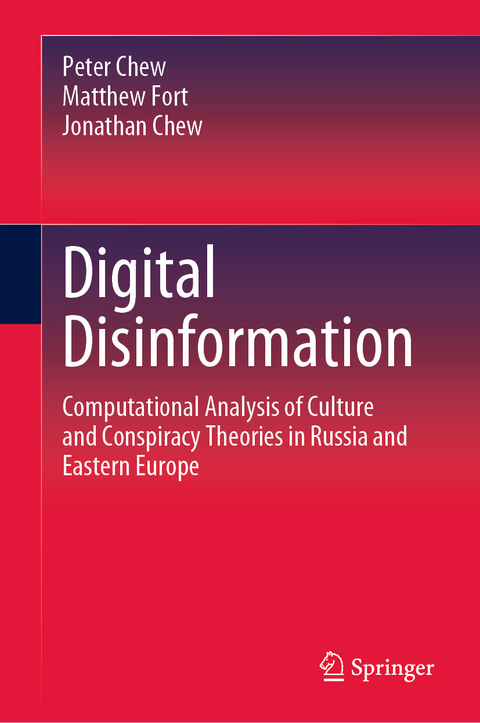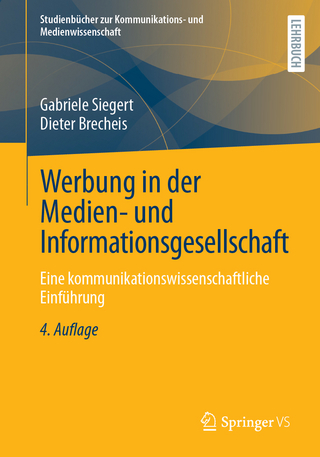
Digital Disinformation
Springer International Publishing (Verlag)
978-3-031-28834-0 (ISBN)
This book helps readers interested in Eastern Europe to 'take the temperature' of the region today, but it is also of interest to readers in the policy and analysis community, because it offers a template, an analytical 'how-to' guide which aims to follow in the footsteps of CIA author Richards Heuer's 'Psychology of Intelligence Analysis', to show how state-of-the-art computational analysis techniques could be applied to similar problems in other topic areas, with the human analyst and computational techniques each working together to create a whole greater than the sum of its parts.
lt;b>Peter Chew is the President and owner of Galisteo Consulting Group, Inc., a consulting company in Albuquerque, New Mexico with a focus on national security. His specialty is in data analytics. Peter has previously worked in a research capacity for the U.S. national laboratories, and as an auditor for Price Waterhouse, where his assignments included field audits of Russian oil and gas companies. Peter's education is a D.Phil. in Russian computational linguistics at the University of Oxford (where he was a recipient of a British Academy scholarship) and a B.A. in Russian and Polish language and literature at the School of Slavonic and East European Studies (University of London), where he earned distinctions in linguistics. Peter has authored and co-authored many articles, primarily in the field of computational linguistics. In the area of finance, where he has also applied his analytical skills, Peter is also a Certified Public Accountant and Certified Fraud Examiner. Peter is fluent in Russian and competent in Polish.
Information Maneuvers in and around Ukraine: What is Really Driving Conflict with Russia?.- Background.- Issues surrounding Ukraine.- What does social media say about the issues?.- Conclusions and recommendations for strategic communications.- Information Maneuvers in the Baltic region.- A distillation of multiple threat assessments and perspectives.- Analysis of social media landscape.- Conclusions and recommendations for strategic communications.- Information Maneuvers in and around Poland: Historical Revisionism and Rule of Law.- Background.- Current issues surrounding Poland.- Analysis of social media landscape in Poland versus East Slavdom.- Conclusions and recommendations for strategic communications.- References.- Information Maneuvers for Soviet Union 2.0.- Background.- Features of everyday Soviet life in the twentieth century.- Social media analysis.- Conclusions and recommendations for strategic communications.- Finding and Analyzing Information Maneuvers on the Fringe.- Fringe narratives: an illustrative example involving Russia and its Eurasian ambitions.- The 'brotherhood of nations' - a historical pattern, not an anomaly.- Eurasian integration: coming in the near future?.- How can we analyze fringe beliefs?.- Demonstration and technical implementation.- Conclusions.- Russian media narratives on Ukraine in 2022:a computational analysis.- Background.- Data used for this report, and method of collection.- Our approach: signal processing (and SVD) fundamentals.- Key narratives in 2022 in Russian media.- What's 'mainstream' and what's 'fringe' in Russian media?.- How topics changed over time in Russian media.- Conclusions.
| Erscheinungsdatum | 20.05.2023 |
|---|---|
| Zusatzinfo | XVIII, 457 p. 220 illus., 171 illus. in color. |
| Verlagsort | Cham |
| Sprache | englisch |
| Maße | 155 x 235 mm |
| Gewicht | 871 g |
| Themenwelt | Sozialwissenschaften ► Kommunikation / Medien ► Kommunikationswissenschaft |
| Sozialwissenschaften ► Kommunikation / Medien ► Medienwissenschaft | |
| Schlagworte | Anthropology • Computational Linguistics • Conspiracy Theory • Former Soviet Union • Russian Studies • Social Media Analytics • Social Sciences |
| ISBN-10 | 3-031-28834-3 / 3031288343 |
| ISBN-13 | 978-3-031-28834-0 / 9783031288340 |
| Zustand | Neuware |
| Informationen gemäß Produktsicherheitsverordnung (GPSR) | |
| Haben Sie eine Frage zum Produkt? |
aus dem Bereich


